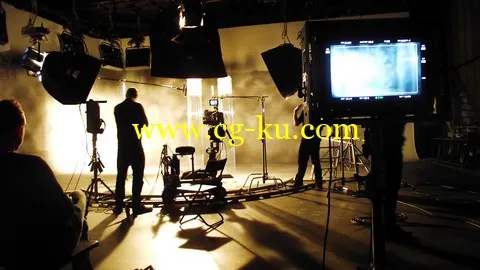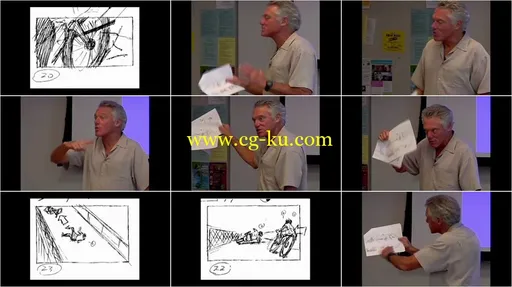
Hollywood Film & Television Directing Masterclass
.MP4, AVC, 1000 kbps, 1280x720 | English, AAC, 64 kbps, 2 Ch | 3.5 hours | 1.35 GB
Instructors: Alex Ferrari, Gil Bettman
Learn How to Become a Working Hollywood Director, How to Move Your Video Camera & Take Your Filmmaking to the Next Level
Want to learn how great directors create award-winning films? Want to learn how to become a working Hollywood director in Television or Film?
In this online course you'll learn When to Move the Camera. The key here is that camera movement must be invisible. It should serve the story without calling attention to itself. Next, learn How To Move the Camera most effectively by systematically fulfilling Five Tasks when designing each moving master shot. Finally, learn how a master of visual design like Zemeckis customizes his application of these Five Tasks to the unique demands of each scene.
Veteran film and television director Gil Bettman will teach you how to enhance drama and heighten action by using different lenses. This is the key to Lensmanship – the technique which Spielberg borrowed from Wells, Kubrick and others to transform the look of today's films.
Once you have grasped Lensmanship you are ready for the final lesson – How to Shoot Action Sequences. Gil will show you how Kathryn Bigelow, John Woo and others ignite the screen by putting the camera in the right place and using the right lenses. Here's what will be covered in the course.
Why you must shoot with a moving camera
When to move the camera
Why all camera movement should be invisible
The three kinds of camera movement that are always invisible
How to move the camera – shoot the best moving master shot
The five tasks of a moving master:
Establishes geography and believability
Eliminates edits
Generates eye candy
Focuses the audience on the center of the drama
Picks up coverage
How to customize the five tasks to each scene
Examples: dailies from:
Movies for TV
Low budget features
Big budget features directed by Bob Zemeckis
Lensmanship
How the look of 3 different lenses is the key to understanding all lenses
The three ways that lenses change the look of a shot
Perspective
Field of Vision
Depth of Field
Shooting Action
The 3 key components to shooting action
Put the camera in the right place
Breaking down your shots
Put the right lens on the camera
How lenses affect motion in the frame
Get the right number of pieces
How coverage heightens energy
How to shoot a chase
How to shoot a fight
So what are you waiting for. Jump start your filmmaking career as a film director.
More Info

发布日期: 2017-04-20